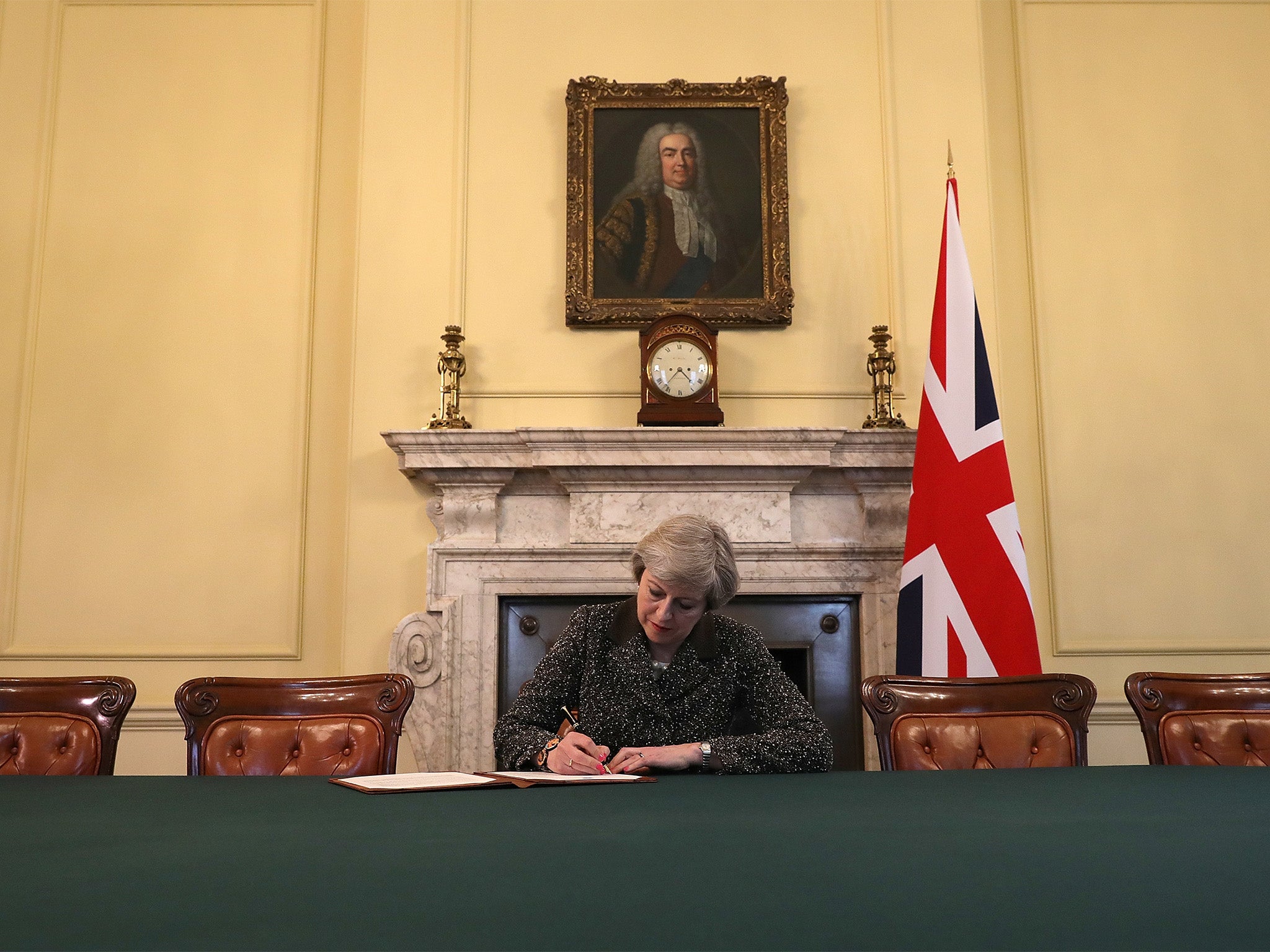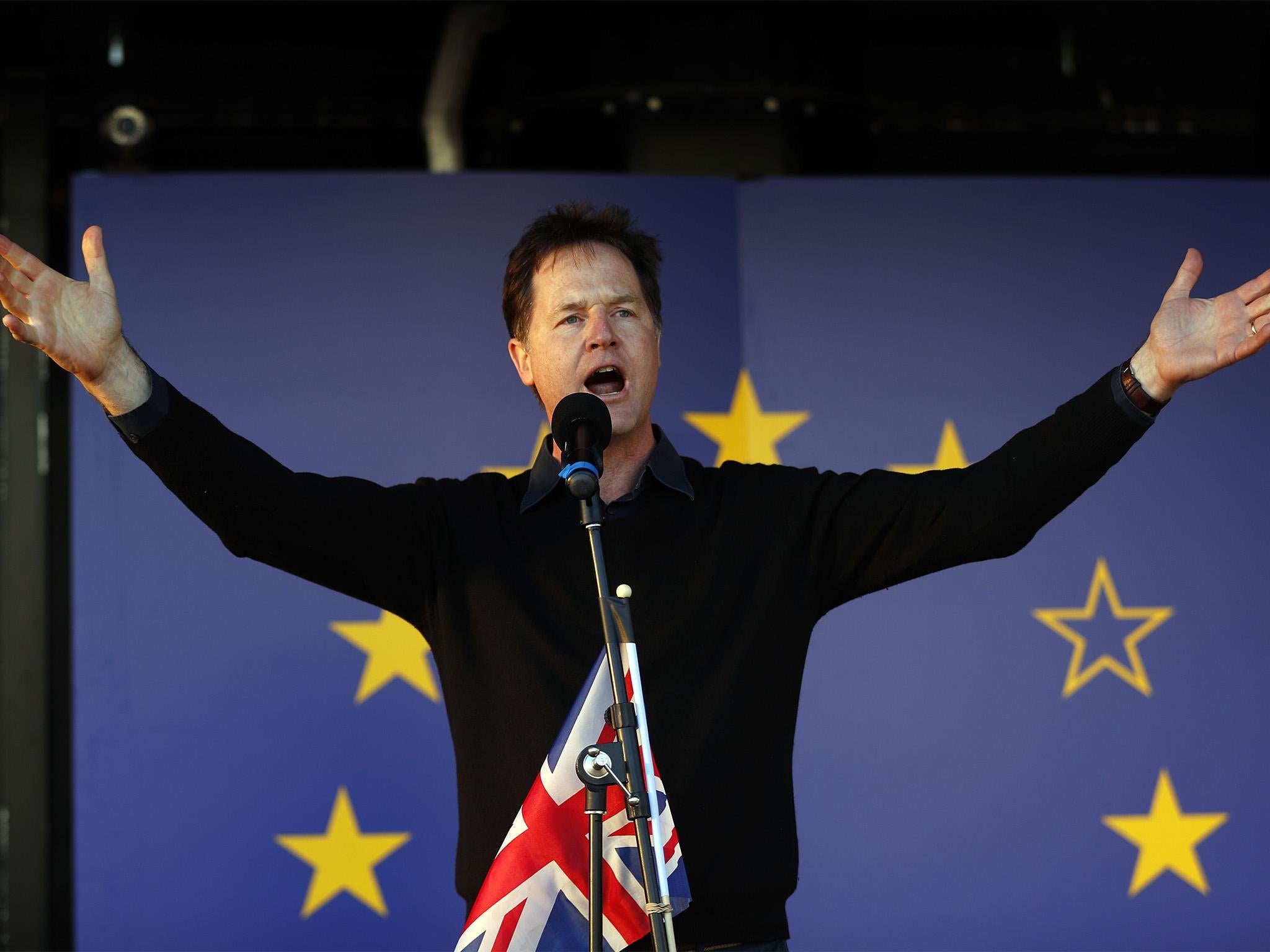The case for a second Brexit referendum
We now know much more about the disadvantages of leaving the EU that we did first time around
Your support helps us to tell the story
From reproductive rights to climate change to Big Tech, The Independent is on the ground when the story is developing. Whether it's investigating the financials of Elon Musk's pro-Trump PAC or producing our latest documentary, 'The A Word', which shines a light on the American women fighting for reproductive rights, we know how important it is to parse out the facts from the messaging.
At such a critical moment in US history, we need reporters on the ground. Your donation allows us to keep sending journalists to speak to both sides of the story.
The Independent is trusted by Americans across the entire political spectrum. And unlike many other quality news outlets, we choose not to lock Americans out of our reporting and analysis with paywalls. We believe quality journalism should be available to everyone, paid for by those who can afford it.
Your support makes all the difference.The very idea of holding a second referendum to approve or reject the terms for leaving the European Union which Theresa May, the prime minister, secures should not in itself be a matter of controversy. As Vince Cable, the Lib Dem leader, argues, Britain could have a second EU referendum before Christmas this year, giving time for a lengthy 12-week campaign starting next September.
Nick Clegg puts a rather different argument. He says that Brexit should be put to a second referendum because people who voted Leave are dying off. The “high point” of support for Brexit had passed because “the oldest voters voted for Brexit in the largest numbers” while the young voted to remain in the EU.
My case is that the first referendum said we should leave without specifying how. In a second referendum, the government would in effect say – here’s the deal we have negotiated... do you approve? What could be more logical? What could be more natural?
Nothing except that Ms May has ruled out a second Brexit referendum. In February, in a typically muddled formulation, she told a conference: “We are leaving the EU and there is no question of a second referendum or going back and I think that’s important. People in the UK feel very strongly that if we take a decision, then governments should turn not round and say, no, you got that wrong.” But if anybody is going to say, “you got that wrong”, it wouldn’t be the government but rather the people saying to the prime minister that she got wrong the exit terms she negotiated. That is what Ms May doesn’t like about the notion of a second referendum.
In fact, there is a strong case for holding a second referendum. Since 23 June 2016, the date of the first referendum, we have learnt quite a few things we didn’t know before. Business chiefs, for instance, are worried about the time-wasting bureaucracy of filling in customs declarations after Brexit takes place. That is what a hard border would mean.
As to the Brexiteers’ notion that technology could be used to avoid this, Jon Thompson, chief executive of HM Revenue and Customs, delivered a stark verdict when he appeared before the Treasury Committee. The cost to business of introducing a high-tech customs plan would be up to £20bn a year, he said. That is a frighteningly high price to pay.

When we cast our referendum vote, we also hadn’t thought about complex procedures such as car assembly. As a car chassis moves along the production line, components from all over Europe are put into their appointed places. If this is taking place in a British car plant, then many of the components will have come from the continent. If the plant is on the other side of the Channel, then many British-made parts will have had to have been shipped across. In fact, more than two-thirds of the UK’s exports to the EU take the form of intermediate inputs to the production of finished goods and services. Likewise, about 55 per cent of imports from the EU represent products to be incorporated in final production in the UK. If all this were to be subject to customs clearance, then the whole series of complex procedures would come to a halt.
No wonder the prospect of Brexit is already having a negative effect on economic activity. As the Organisation for Economic Cooperation and Development, an intergovernmental economic organisation, commented this week: “Economic growth is projected to remain modest at 1.4 per cent in 2018 and 1.3 per cent in 2019, owing to high uncertainties about the outcome of Brexit negotiations.” This is about half the rate of growth being experienced by the rest of Europe. Did we know that Brexit would condemn Britain to reduced economic activity?
Another thing that was not realised in June 2016 is that British people are gradually becoming more relaxed about immigration. Rob Ford, a professor at the University of Manchester, argues that “the public have become more positive about immigration. Far fewer see it as a major political priority and more see it as positive for Britain’s economy and culture. What is more, this shift is seen across the board – it isn’t a case of liberal ‘Remainers’ rallying behind migrants, while migrant-sceptic ‘Leavers’ dig in their heels. The positive shift in attitudes seems to be occurring across the political and social spectrum.” A recent Times/YouGov tracking poll, for instance, found that immigration was no longer among the most important issues troubling the nation, but was now ranked third.

In short, we need a second referendum because we know much more about the disadvantages of leaving the European Union that we did when we were first asked. Moreover, in Ms May we have a prime minister who cannot make up her mind about anything. The Financial Times put this point strongly on 17 May: “It has been 693 days since Britain voted to leave the EU. In another 316, that decision is set to become reality. Yet the government of Theresa May has still not come to an agreement – either with itself or with Brussels – on what the new economic relationship with the continent should be. This was the most basic question raised by Brexit, and it should have been answered before Article 50 was triggered, setting in motion withdrawal. Failure to do so is testament to political divisions and weak leadership.” So we shall have to make up Ms May’s mind for her.
So, in light of this muddle and confusion, what question would be put in a second referendum? In the 2016 referendum the question was should the United Kingdom remain a member of the European Union or leave the European Union? In effect, this formulation called for an answer from the gut. Like it or leave it? But in a second referendum, this luxury would not be available. There would have to be reference to the terms of disengagement covering such crucial questions as whether the UK would remain a member of some kind of customs union. As it is hard to get such detail into a simple question, I suggest the following:
Should the United Kingdom remain a member of the European Union or leave on such terms as approved by parliament?
In addition, a simple version of the terms approved by parliament could be sent to every voter and could be made available in voting stations.

This would have the merit of emphasising that parliament is the supreme decision-making body in this country. However, as a Remainer, I must remember a key rule about asking questions – never ask one when you might not like the answer. How likely is it that the answer to a second referendum might differ from the first? Remember that voters are likely to be hostile to the holding of a second referendum. They may think – you have asked us once, we gave you an answer, don’t bother us again. With the result that the turnout for a second referendum would likely be low and thus unconvincing.
However, Peter Kellner, the experienced political commentator and former president of YouGov, has just published a much more upbeat appraisal. He believes that below the surface, public opinion is stirring. In particular, one million Labour voters who backed Brexit two years ago are having second thoughts. His study of recent polling results convinces him that significant numbers of younger Leave voters, as well as those supporting Labour in last year’s election, no longer think Brexit is right for Britain. He also supports the Nick Clegg thesis and argues that the effects of demographic changes since the referendum are growing. “Bluntly,” as he writes, “older, mainly Leave, voters are dying and younger, mainly Remain, voters are joining the electorate.”
Mr Kellner bases his findings in the more than 23,000 voters that YouGov has questioned since the start of the year. And his conclusion is that there is a real prospect that if the people were given the final say on Brexit, they would vote for the UK to stay in the European Union. So let’s have a second referendum.

Join our commenting forum
Join thought-provoking conversations, follow other Independent readers and see their replies
Comments